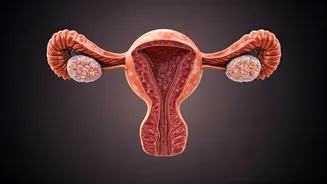Understanding the Options
Higher education in India presents two primary routes: the standard UG/PG pathway and integrated courses. The UG/PG route involves completing a Bachelor's
degree (typically 3-4 years) followed by a Master's degree (2 years), accumulating to a total of 5-6 years. This allows students to experience multiple academic environments and, if desired, shift their field of study at the Master's level. Conversely, integrated courses, lasting around 5 years, combine both Bachelor's and Master's degrees into a single program. Popular examples include integrated MSc, BTech-MTech, LLB, and MBA programs. Admission to integrated programs typically occurs directly after Class 12, with the crucial aspect being that students generally cannot switch institutions mid-program and must complete the entire course to attain their degree.
UG/PG: The Flexibility
The UG/PG route provides notable advantages in terms of flexibility and career exploration. Students can study at different universities for their Bachelor's and Master's degrees, broadening their exposure to varied academic settings and new locations. A significant benefit is the ability to change academic disciplines. For instance, a student might initially pursue a BSc in Chemistry and later opt for an MSc in a specialized field like Organic Chemistry. Moreover, this flexibility extends to career choices. After finishing a Bachelor's degree, a student may decide to pursue an MBA or delve into Data Science, altering their career trajectory. The primary challenge of the UG/PG approach includes the extended duration and the costs associated with two distinct courses, coupled with the separate admission processes required for each level.
Integrated Courses Benefits
Integrated courses offer an appealing alternative, especially for those seeking to save time and possibly costs. These programs, which combine Bachelor's and Master's degrees, typically last 5 years, potentially saving up to a year compared to the UG/PG route. A significant benefit is the potential to complete two degrees within a single course. Integrated courses are well-suited for students aiming for research-oriented careers or intending to pursue a PhD. The consistency of studying at the same institution over an extended period can foster stability and deeper engagement with the academic community. However, this structure demands a clear career path early on, as changing majors or institutions is challenging after the initial years of study.
Key Considerations
When choosing between UG/PG and integrated courses, several crucial factors should be considered. Firstly, evaluate your academic interests and career aspirations. If you desire a broad exploration across different fields and want to keep your options open, the UG/PG route might be more suitable. Consider also if you want to experience learning in different universities. If, however, you have a specific career goal in mind, particularly in research, and prefer a focused, time-efficient approach, an integrated course could be the better fit. Other important factors include course duration, fees, and the career opportunities each option provides. It's beneficial to thoroughly research the specific programs offered by different institutions, comparing their curricula, teaching methods, and placement records to make the most informed decision.













